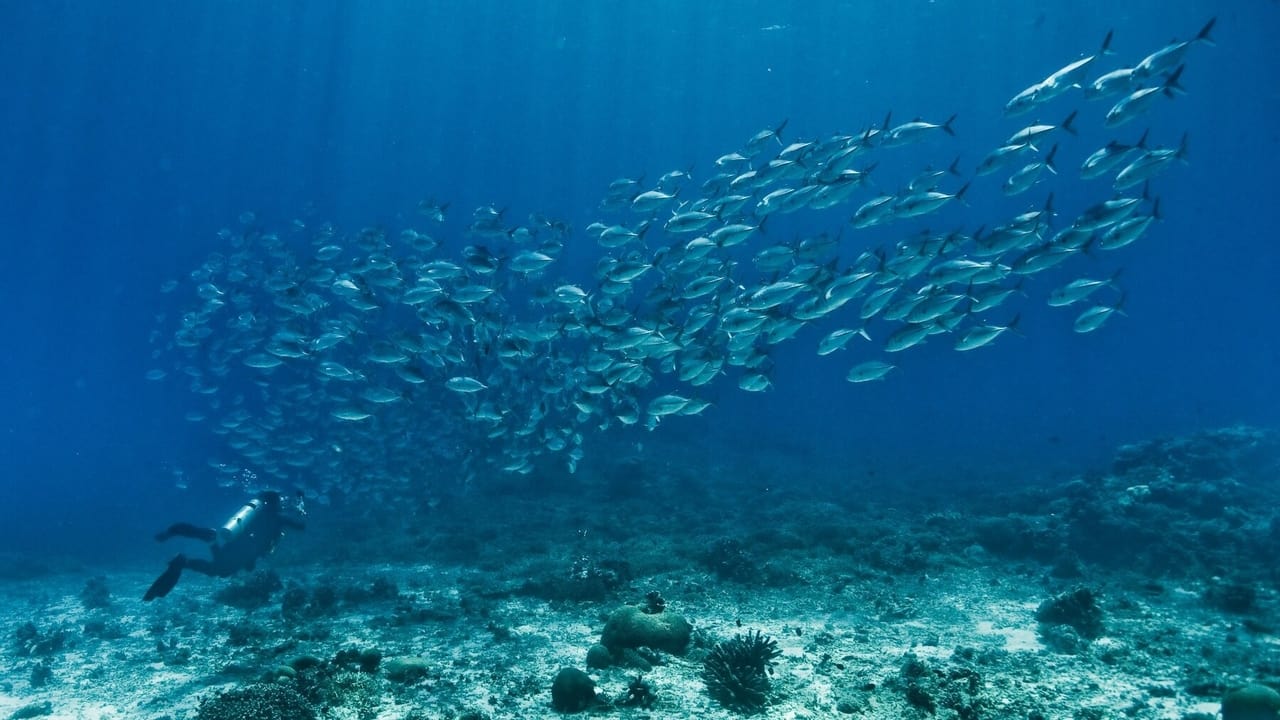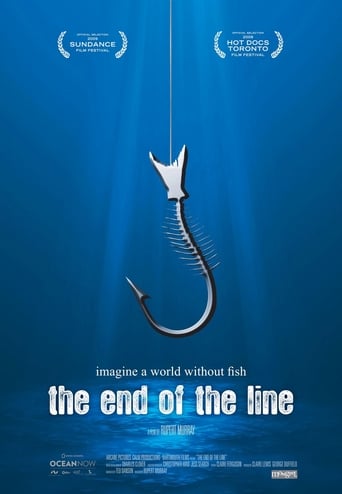



Good concept, poorly executed.
Fantastic!
A Disappointing Continuation
It is both painfully honest and laugh-out-loud funny at the same time.
View MoreTed Danson narrates this documentary from Rupert Murray about declining fish stocks all over the world. It is based on journalist Charles Clover's investigative book. It starts with the crash of the northern cod. Then it examines various fish species and overfishing from around the world.This has some eye-opening data and some shocking facts. It doesn't get very in-depth. It does take a vast subject and boil it down to an easily digestible hour and a half. For example, the crash of the northern cod doesn't dive into the international nature of the fishery. It's understandable to skim over the complexity of international fishing negotiations. This is a nice starter documentary especially for the uninformed.
View MoreWho's the scariest predator in all the world's oceans? Not the shark or killer whale it's -- you guessed it -- (fisher)Man.This documentary shows how high-tech sonar equipment and nets the size of seven jumbo jets are depleting the main source of protein for 60% of the planet's people. Just as cod was wiped out off of Newfoundland, leaving tens of thousands unemployed, choice species of fish could disappear forever, leaving an unsavory array of "cow face" rays and worms in their wake. And fish farming isn't the answer because farm fish eat chopped up anchovies and other "fish meal." The film's nearly all-male talking heads sound a terrifying warning that must be heeded. But since many countries are involved and enforcement of regulations is lax it seems like an insurmountable problem. The film does hint at what regular Joes can do to help I.e., refrain from ordering endangered species like marlin at hoity-toity boutique eateries like Nobu in NYC.
View MoreFree market fundamentalists tell us that there is no need to worry about diminishing natural resources; as they become scarcer, so the price rises, stimulating human abstinence and ingenuity. In the worst case, where we can't find a better solution, we at least take care of our final stocks (because they are increasingly expensive) and enjoy a gradual transition to the new world. The problem is, that economies are very short-termist. Price is determined, not just by the size of the total remaining stocks, but by the rate of their supply. And rising prices can stimulate more intensive exploitation methods that suppress the natural tendency for a scarce product to become more valued, while advancing the day that it runs out altogether. Some fear this is what man will face (and soon) with oil; as Rupert Marray's film shows, it's what we're already facing in many parts of the world with fish. The irony with fish is that the bounty of the oceans is actually a renewable resource, so long as it isn't over-exploited. But our capacity for self-restraint seems minimal: in the EU, for example, scientists recommended a quota for catches of 10 million tonnes for blue-fin tuna to allow the depressed population to recover, or 15 million to stop things getting worse; the politicians allowed 30 million, and the fishermen caught 60 million. If the film has a weakness, it's that it doesn't show us why politicians are so stupid, namely their fear of ruined fishing towns and starving people. I wish it let them make these arguments, mostly because they're plain wrong; the towns will have no jobs anyway if the oceans run out of fish, and the worst offenders when it comes to overfishing are people from the affluent west. As each year the planet's resources seem scarcer, our rape of the oceans seems increasingly stupid - whatever the sacrifices now required, the long-term cost of not making them will be higher. Meanwhile, that tuna you shouldn't really be eating may soon be your last, like it or not.
View MoreThis film is amazing and good in the sense that it provokes and inspires people to follow the message it brings (a bit like in "An Inconvenient Truth", although this film addresses one main issue). It addresses the very serious issue of overfishing. The film presents good points about the subject and backs it up with valid evidence. The points explains the main points of the past and the present about overfishing, many of which are astounding. The evidence they provide can be breathtaking (for example, the amount of tuna the EU wants to fish per year). This proves that the people have researched well and it really is true that overfishing is one of the main environmental problems of our corrupted world today.The visuals are also impressive. The most upsetting are the thousands of dead fish you see in nets, boats and fish being cut up and transported around the globe. The most enjoyable part of the film are the visuals of the coral reefs and open seas, teaming with fishy life. :-)As far as I know this film is still out in the cinema, so if you have the opportunity, please go and see it as soon as possible. If you have a mind that is even one millimetre open, it could well change your vision about eating fish forever. 7 and a half out of ten.
View More